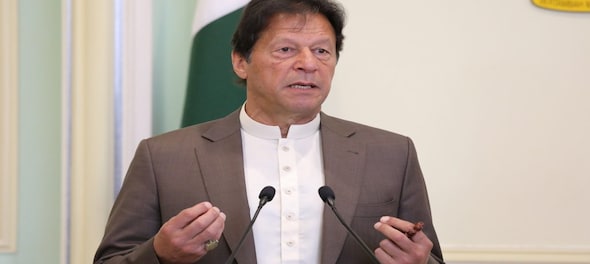
The 'grey list' that the Financial Action Task Force (FATF) plenary in Paris decided to hold Pakistan back on turned far darker shades of grey than anyone anticipated earlier. On the list of requirements for Pakistan, it got 14 marks out of 27, over matters of concern to the FATF hat have been "largely addressed." So that is progress, that was duly noted. But that still does not place Pakistan in the middle of the grey zone. The mark sheet doesn’t quite tell the story.
 London Eye
London EyeOn the brighter or lighter side of the grey, the FATF meeting noted: "Since June 2018, when Pakistan made a high-level political commitment to work with the FATF and APG (Asia Pacific Group) to strengthen its anti-money laundering and countering terrorist financing regimes and to address its strategic counter-terrorist financing-related deficiencies, Pakistan’s political commitment has led to progress in a number of areas in its action plan." But clearly not all 27 requirements are each as significant as the other, they hardly could be. Many of these are relatively minor regulatory matters that Pakistan has complied with.
So what Pakistan was found to have made progress over "risk-based supervision" and "pursuing domestic and international cooperation to identify cash couriers." The Pakistani government appears to have instituted supervising regulations and limited cash availability from its institutions. But going by the concerns raised by 39 FATF members at the meeting, Pakistan’s score reads more like two out of ten than 14 out of 27. Every one of the 39 members had its own views that weighed down heavily against Pakistan in the end.
After pointing to a couple of ticked boxes, consider what the FATF announced Pakistan must still do. Pakistan, the FATF said, must address continuing "strategic deficiencies". Pakistan has been asked to demonstrate the following ahead of the next FATF plenary in June:
In giving Pakistan all this to do over the next four months, the FATF noted that "all deadlines in the action plan have expired" and that it now "strongly urges Pakistan to swiftly complete its full action plan by June 2020." And that’s followed by a stern warning. "Otherwise, should significant and sustainable progress especially in prosecuting and penalising terrorist financing not be made by the next plenary, the FATF will take action, which could include the FATF calling on its members and urging all jurisdiction to advise their financial institutions to give special attention to business relations and transactions with Pakistan."
That effectively would be blacklisting then, though FATF does not officially use colour-coded language. What is commonly called the grey list translates officially as a list of monitored jurisdictions. The FATF is not warning Pakistan that if it does not comply by June, and comply on the big issues, it would continue to remain a monitored jurisdiction. It is warning Pakistan that it will advise financial institutions to give "special attention" to business dealings with Pakistan. From the FATF this could be the last chance given to Pakistan to reform.
London Eye is a weekly column by CNBC-TV18’s Sanjay Suri, which gives a peek at business-as-unusual from London and around.
Read his columns here.
First Published: Feb 22, 2020 5:00 PM IST
Check out our in-depth Market Coverage, Business News & get real-time Stock Market Updates on CNBC-TV18. Also, Watch our channels CNBC-TV18, CNBC Awaaz and CNBC Bajar Live on-the-go!


PM Modi to chair seven meetings on June 2 to decide next 100 days in office
Jun 2, 2024 11:35 AM
Lok Sabha Election 2024 | Five key takeaways from the exit polls for BJP and the opposition
Jun 2, 2024 9:16 AM

